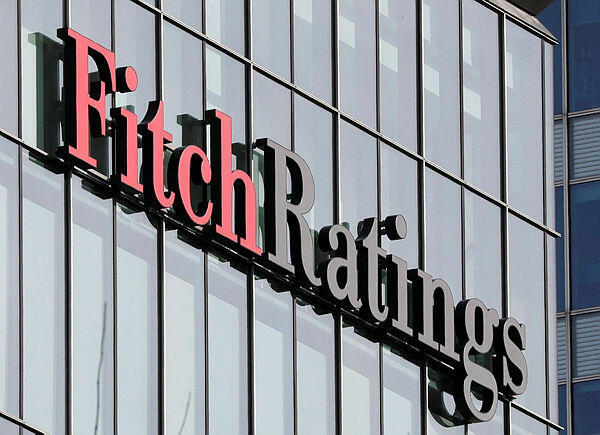Getting your Trinity Audio player ready...
In a climate of increasing geopolitical instability, Israel has faced a series of credit rating downgrades from major international agencies. Most recently, Fitch downgraded Israel’s credit rating from A+ to A, while Moody’s lowered it from A1 to A2 earlier this year.
The decision, rooted in the ongoing conflict in Gaza and its broader geopolitical ramifications, signals a turning point for Israel’s economy—a topic I have explored extensively in my previous works on the implications of geopolitical risks for Israel’s credit profile.
Fitch’s downgrade is not merely a reflection of the current state of war but a forecast of potential long-term economic strain. The agency projects a budget deficit of 7.8% of GDP for 2024, a significant jump from the previous year. Furthermore, the debt-to-GDP ratio is expected to exceed 70% in the medium term, with the possibility of further increases if military expenditures remain elevated. These figures echo my earlier analyses, where I warned that prolonged military engagements would inevitably place a heavy burden on Israel’s public finances and could lead to a reassessment of its creditworthiness by international agencies.
The implications of this downgrade are profound. While an A rating is still within the realm of investment-grade ratings, it does indicate a higher risk perception among global investors. This heightened risk could lead to higher borrowing costs for Israel, making it more expensive to finance its debt—a concern I highlighted in my previous research on Israel’s fiscal challenges amid regional instability.
Finance Minister Bezalel Smotrich’s response to the downgrade emphasizes the resilience of Israel’s economy, framing the credit rating cut as a natural consequence of an unprecedented and existential military conflict. However, as I have previously argued, the resilience of an economy must be measured not just by its ability to weather immediate crises but by its capacity to sustain long-term growth in the face of ongoing geopolitical pressures.
Fitch’s report also touches on the political challenges that could hinder necessary fiscal reforms, a theme I have explored in my studies on the intersection of Israeli politics and economic policy. The agency notes that coalition politics and the exigencies of war may delay or dilute the implementation of these reforms, further complicating Israel’s economic outlook.
This downgrade should serve as a wake-up call for policymakers and economists alike. The cost of conflict is not limited to the battlefield; it extends into every facet of a nation’s economic health. As I have pointed out in my previous works, Israel’s economic strategy must adapt to these new realities, balancing the demands of national security with the imperatives of fiscal responsibility.
The path forward for Israel is fraught with challenges, but it is not without hope. A recommitment to sound economic policies (less spending on non-productive resources), coupled with a strategic approach to mitigating geopolitical risks, could stabilize Israel’s credit profile and restore confidence in its long-term economic prospects.
Another potential avenue for strengthening Israel’s economic resilience lies in the adoption and legalization of cryptocurrencies. In a recent study conducted with my colleague Orpaz Keinan, we found that integrating cryptocurrencies into a country’s legal and financial systems can have a positive impact on sovereign credit ratings by enhancing economic freedom and institutional trust. However, this is not a substitute for robust economic institutions.
For Israel, embracing cryptocurrencies could signal to global investors and credit rating agencies that the country is at the forefront of financial innovation. Yet, this move must be part of a broader strategy that includes reducing bureaucratic barriers, improving regulatory transparency, and fostering a more inclusive economy. These steps are essential not only for attracting investment but also for ensuring that Israel’s economy remains dynamic and resilient in the face of ongoing challenges.
Moreover, Israel’s high-tech sector, a critical engine of economic growth, has been hit hard by the current crisis. The sector, which relies heavily on foreign investment, has seen a significant decline in funding, further exacerbated by the broader economic and political uncertainties. As I noted in my discussions on Israel’s economic outlook, maintaining investor confidence in such times requires a clear and consistent economic policy that prioritizes long-term growth over short-term political gains.
 Prof. Ilan Alon Photo: Courtesy
Prof. Ilan Alon Photo: CourtesyThe path forward for Israel is clear: it must embrace economic innovation while strengthening its traditional economic institutions. The adoption of cryptocurrencies offers a promising tool for enhancing economic freedom, but it must be implemented alongside broader reforms that address the root causes of Israel’s economic vulnerabilities. This balanced approach will not only help Israel navigate its current challenges but also position it for a stronger, more resilient future.
In conclusion, Israel stands at a crossroads. The choices made today will determine whether the nation can emerge from this period of uncertainty with a stronger, more resilient economy. By embracing both innovation and sound economic policies, Israel can navigate these challenges and secure its place as a stable and prosperous nation in the global arena.
- Prof. Ilan Alon is the Dean of the School of Economics (Israel), and previously served as Chair (USA) and Director (USA) of various educational programs around the world, and held visiting positions in prestigious universities such as Harvard, Georgetown and China Europe International Business School, among others. A prolific author, Prof. Ilan's work has been featured in esteemed journals like the Harvard Business Review, International Business Review, Cato Journal, and many more.



